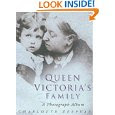 I recently had the opportunity to discuss Most Beautiful Princess with a group of readers here in America. This gave rise to a number of questions, which we put to Christina in writing (as she is in England). It might be of interest to other readers to read the questions and responses.
I recently had the opportunity to discuss Most Beautiful Princess with a group of readers here in America. This gave rise to a number of questions, which we put to Christina in writing (as she is in England). It might be of interest to other readers to read the questions and responses.Cheryl: Prior to writing this novel, you had written a biography of Ella. What inspired you to do that in the first place?
Christina: The murder of the Russian Imperial Family is, of course, extremely well-known, and yet, though I was familiar with that, I had never heard anything about Ella until about ten years ago when I came across an article about her. I was amazed that this woman, who had once been seen as 'the most beautiful princess in Europe' and who had made such an impact on so many lives, was little more than a footnote in history. It was she who had virtually single-handedly engineered the marriage of her sister, Alix, to the future Tsar Nicholas II; she had - with her own hands! - picked up the remains of her husband when he was blown to pieces by a terrorist's bomb, and then forgiven his assassin; and she had done something totally unheard of in dispensing with her wealth in order to bring beauty to the poorest part of Moscow, personally tending the most abject patients in her hospital, and revealing a completely different side to the Imperial Family than the one which is usually presented of them living in luxury, oblivious of the poor around them. Most people I spoke with had heard of Nicholas and Alexandra and their children, but I did not meet anyone who had even heard a word about Ella. Her statue stands above the door or Westminster Abbey and thousands of people pass it each day, knowing nothing about this remarkable life. At that time, there was no biography of the Grand Duchess published in England, and my sole aim in writing it was to make her better known as I feel she is one of the forgotten heroines of history, and a great inspiration to people today.
Cheryl: You decided to re-write the biography as a novel. Why was that?
Christina: A biography allows little room for interpreting feelings, emotions or spirituality. Biography, I think, is written very much from the head, whereas a novel can be written also from the heart. The more I learned about Ella, and the more I considered her motives and her spiritual experiences, the more I felt I 'knew' her and I wanted to go beyond the contraints of a purely 'factual' biography, wherein everything has to be cited from sources. I believe there are emotions and experiences that are common to all of us, which we never commit to paper or store in archives. I have no written sources for my own experiences of love, fear, awe and so on, yet I know I have experienced these things. When it comes to spiritual experiences - and Ella's, I am sure, were intense - it is even less likely that such things are put down in writing. Nor is it possible in a biography to state what someone was thinking, but it is possible to work backwards, seeing through actions to the motivations behind them, and the thoughts behind that motivation. There is much more freedom in a novel to create a fully-rounded human being, making the subject much more accessible so that readers can empathise more fully. That is what I hoped to achieve by this. I wish there were another term for this genre - something like 'faction' or 'ficto-biography' - as this book names no fictional characters, nor does it include any events which didn't actually happen. It is basically a biography with thoughts, words and interpretation of a heart, rather than simply events.
Cheryl: From the prologue of the book we know of Ella's ultimate fate. Why did you choose to provide that information first?
Christina: The first thing I discovered about Ella was that she was murdered in so horrific a way by the Bolsheviks. It was that fact that led me to want to know more, and so many questions gnawed at me. Why did a granddaughter of Queen Victoria, a woman whom the Muscovites revered as a saint, meet so terrible a fate? Why was she a nun? Why didn't she escape when she still had the chance? How had she come from those glittering ballrooms, stunning every man in the room, to this violent end? The more I thought about this, the more it seemed that knowing the end of the story at the beginning, creates the whole sense of where Ella's whole life was leading. And, although the prologue speaks of her ultimate fate, there is an added epilogue, which contains some information not revealed at the beginning which, I think, adds a whole new perspective on her death...and beyond!
Cheryl: In spite of the tragedy of the story, several people have commented upon feeling much better and more uplifted after reading this novel. Why do you think that is?
Christina: I am very happy if people feel that way. I think that, in spite of the end, Ella's life is not gloomy or depressing because it was a very full life and she achieved so much in those fifty-three years. The images of beautiful malachite ballrooms, the dazzling jewels, the glorious splendour of it all, raises my heart when I think of them, but then, too there is all that Ella did to bring beauty into the ugliest parts of the city. She seemed to experience everything from adulation - for her physical beauty, and later for her spiritual beauty - to being attacked as a 'Hessian witch' or a 'German spy'. She knew the opulence of that fabulous Russian Court, and she knew the absolute squalor of the slums. She knew awe and wonder and she knew despair. Hers was a life lived to the full and I think that is an uplifting thought.
Cheryl: During her lifetime Ella's marriage was the subject of so much rumor and gossip, and the speculation about whether or not the marriage was consummated or whether Serge was homosexual, continues to this day. In Most Beautiful Princess, you present a more sympathetic view of Serge. Why is that?
Christina: I think a lot of very one-sided and superficial descriptions of Serge have been written. In numerous places, I have read glib lines about, "Ella was very unhappily married," "Serge was gay," "Serge treated her badly." It all seems to be a quick - and in my view, mistaken - judgement. No one is that one-dimensional, and I think both Ella and Serge were deeply complex characters. Serge has so often been made into some kind of one-dimensional villain, rather than a very highly-strung man, desperately struggling to keep his frustration in check - and that frustration often resulting in outbursts of temper. Ella loved him and mourned him deeply and, as I see it, gossip and rumour caused her more pain and humiliation than anything she suffered from Serge. That doesn't mean I think he was easy to live with - and I hope that comes across clearly in the book. I believe we can observe a lot in body language and the more photographs you see of Serge, the more obvious it becomes that he had something to hide...
Cheryl: Although you obviously love your characters, you have not shied away from presenting Ella's human flaws. You had no difficulty in doing that?
Christina: Not at all. As a child I read the lives of so many canonised saints who were far too good to be true, or even real. Ella was not a plaster-cast image, but a real person with the same emotions we all have. Characters are far more endearing and we can empathise with them more fully when we know they are no different than we are.
Cheryl: In this midst of this very moving story, there are times when it appears that Queen Victoria provides the light - even comic - relief. Isn't that surprising, considering the general perception of her as a rather dour and unamused woman?
Christina: Queen Victoria never fails to amuse me! A busybody, always wanting to know the latest gossip; viewing her own marriage to Albert as more blissful than anyone else's; viewing her own sorrow as deeper than anyone else's, and yet, at the same time being so genuinely concerned and loving towards her granddaughters. I love Queen Victoria! And she was nothing like the staid old widow that she is often presented as being!
Cheryl: The novel is rich in descriptions that appeal to every sense. We can smell the scents of jasmine in the Holy Land, or the explosives from the bombed carriage in Moscow. We can hear the music in the ballrooms, feel the icy wind, see the sun rising over the Moskva River. How do you go about creating these very sensual images that give us the impression that we are actually there?
Christina: Usually, scenes just come to me in an image and I simply sit and listen to music, look at the window in the night, and the scenes appear before me as though on a cinema screen. I don't know where it comes from, it's just like seeing a film in front of my eyes, and, as it becomes clearer, I just smell the scents and hear the sounds. It's as though I don't have anything to do with it. It just happens.
Cheryl: Are there any other members of Queen Victoria's family about whom you'd like to write a similar style of book?
Christina: Many of them! Prince Albert, whom I love! Vicky (Empress Frederick) and Alice, Ella's mother; Moretta of Prussia...even the Kaiser! But, first I need to complete The Beckford Suite, which is a sequel to an earlier historical novel - The Fields Laid Waste - set at the opposite end of the social ladder.
Most Beautiful Princess

















2 comments:
Oh my goodness, this book looks fabulous!
Thank you, Mimi :-). And thank you for visiting our site :-)
Post a Comment